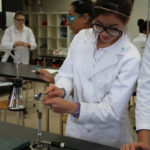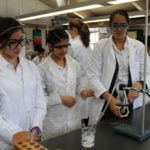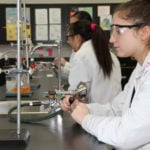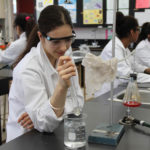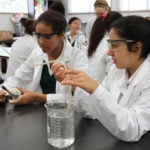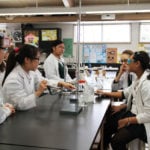
Mr. Wright’s Science 9 class have been distilling their very own moonshine in the Sr. Science wing!
The experiment started before the Winter Break. The students first started with making homemade apple wine: apples with yeast, and sugar. This started the fermentation process to produce alcohol. But to create spirits other than wine, such as vodka or brandy, one more step is required – distillation.
Today (Jan 18), they completed the rest of the experiment… distilling the alcohol from the wine to produce brandy. They heated the wine, boiling the alcohol into a vapor, and then collecting that vapor into a test tube and condensing it back into a liquid…voilà: alcohol!
The experiment is a fun way of studying some interesting chemistry; an enzyme catalysed reaction of sugar into ethanol. The class considered the conditions necessary for fermentation, one of the oldest chemical reactions known to man.
Finally the distillation illustrated how substances can be separated, or purified, based on their differing boiling points. The final ‘brandy’ was flammable and in many developing countries alcohol is now used as a fuel in cars.



